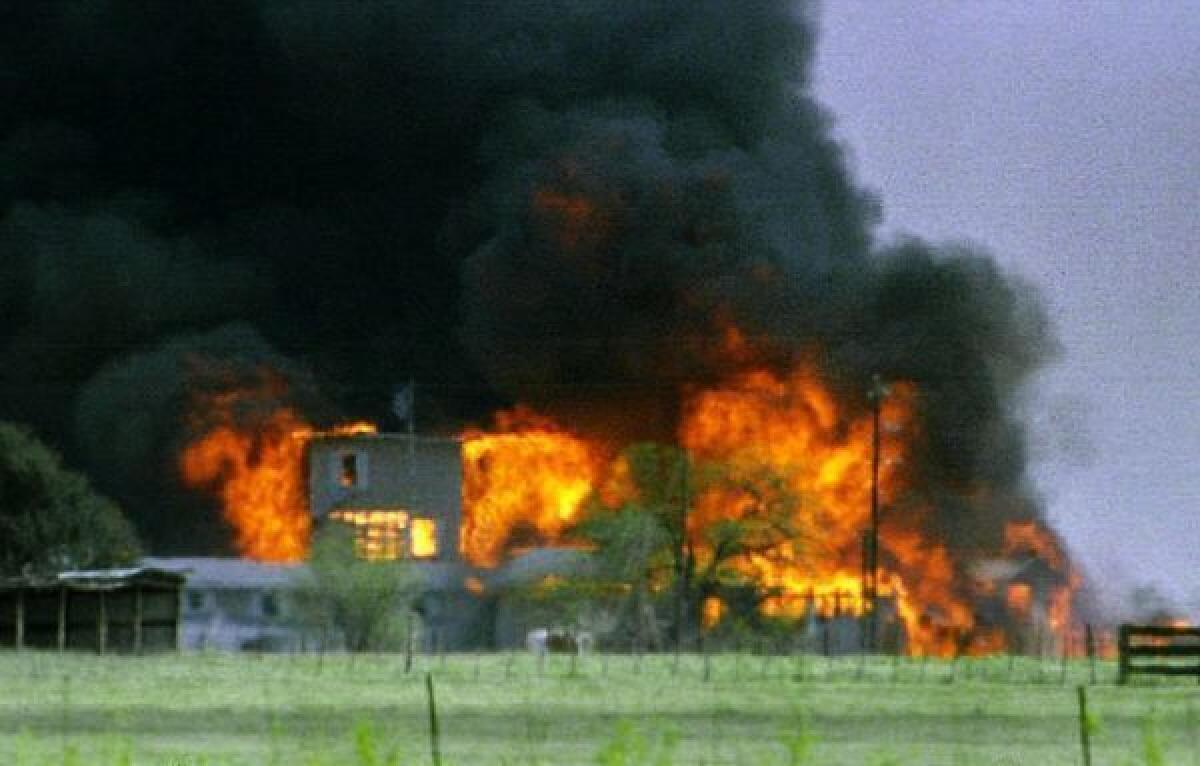Civil rights group warns of rising danger from extreme right

Efforts to limit gun violence and to bring about immigration reform have led to a growing backlash from the extreme right, including the so-called patriot and militia groups, a civil-rights group said Tuesday.
In its latest report, the Southern Poverty Law Center, which tracks extreme right-wing and hate groups, said that it had counted 1,360 patriot groups in 2012, up about 7% from the 1,274 active in 2011. But that is also a rise of 813% since 2008, the year before President Obama, the nation’s first elected African American president, took office.
The groups include 321 militias, far more than the movement’s previous peak in the 1990s, when militias were inflamed by the 1993 Brady Bill to control guns and the 1994 assault rifle ban, the center said.
“Now, in the wake of the mass murder of 26 children and adults at a Connecticut school and the Obama-led gun control efforts that followed, it seems likely that that growth will pick up speed once again,” the center noted.
The report also cites the election of Obama, efforts to grant more than 11 million undocumented immigrants a path to citizenship, and a troubled economy as contributing factors in the growth of the far-right groups.
“We are seeing a real and rising threat of domestic terrorism as the number of far-right anti-government groups continues to grow at an astounding pace,” said Mark Potok, Southern Poverty Law Center senior fellow and author of the report. “It is critically important that the country take this threat seriously. The potential for deadly violence is real, and clearly rising.”
Founded in 1971, the center has been the leading watchdog of the extreme right ever since, monitoring a diverse collection of groups that includes neo-Nazis, white nationalists, black separatists, Holocaust deniers and the patriot and militia movement.
In general, the patriot and militia enthusiasts believe that the U.S. government is seeking to disarm them as a first step to destroying personal liberty and then turning the country over to foreigners seeking world domination.
From 149 organizations in 2008, the number of patriot groups shot up to 512 in 2009, jumped again to 824 in 2010, and then skyrocketed to 1,274 in 2011 before hitting an all-time high last year, the center said.
For many Americans, the first inkling of the militia movement came in the August 1992 standoff at Ruby Ridge in Idaho, where three were killed, including a U.S. marshal, in a dispute that involved an illegal-weapons charge.
By February 1993, the U.S. government found itself in another battle over illegal weapons, this time in Waco, Texas, against a group known as the Branch Davidians. In an initial confrontation, four agents and six members of the group were killed in a shootout. On April 19, the government attacked the compound, which caught fire, killing 76 more members of the group.
Citing Ruby Ridge and Waco, Timothy McVeigh,a militia movement member, launched a homemade truck bomb attack on the Alfred P. Murrah federal building in Oklahoma City in 1995. At least 168 people died and 680 were injured in the attack. McVeigh was convicted and executed.
In a letter to U.S. Atty. Gen. Eric Holder and Homeland Security Secretary Janet Napolitano, the center warned of the potential for current domestic terrorism and urged the creation of a new interagency task force to assess the adequacy of federal resources devoted to the threat.
“As in the period before the Oklahoma City bombing, we now are seeing ominous threats from those who believe that the government is poised to take their guns,” wrote the center’s President Richard Cohen, a member of the Department of Homeland Security’s Countering Violent Extremism Working Group.
In October 1994, the center wrote to then-Atty. Gen. Janet Reno about the growing threat of domestic extremism; the Oklahoma City federal building was bombed six months later in the country’s deadliest act of domestic terrorism, the center said.
In the wake of a series of gun attacks in recent years, the government has moved to toughen its gun laws on both the state and federal levels. Some states, such as New York, have already passed tougher laws and the issue is being debated in Congress. Some are seeking a new assault-weapons ban and there is support for universal background checks. The effort was renewed in the wake of the attack by a lone gunman on a Connecticut elementary school last year where 20 children and six educators were killed before the gunman committed suicide.
Potok said the December school shooting and subsequent gun-control debate created a “white-hot rage” among extremist groups and a political climate “very reminiscent” of the period leading up to the 1995 Oklahoma City bombing.
ALSO:
Florida sinkhole visible after home demolished
FAA investigating report of drone aircraft over JFK airport
Arizona loses appeal over part of law aimed at day laborers
More to Read
Sign up for Essential California
The most important California stories and recommendations in your inbox every morning.
You may occasionally receive promotional content from the Los Angeles Times.











